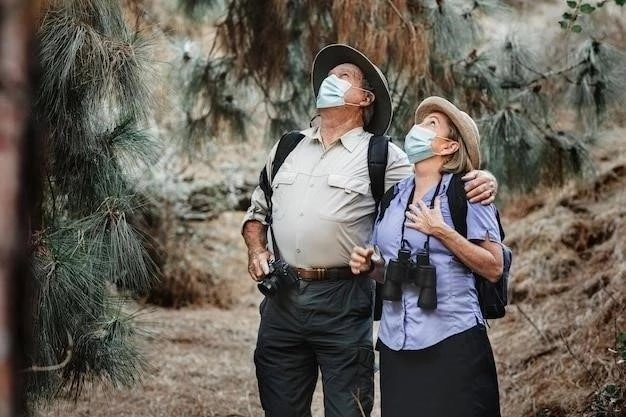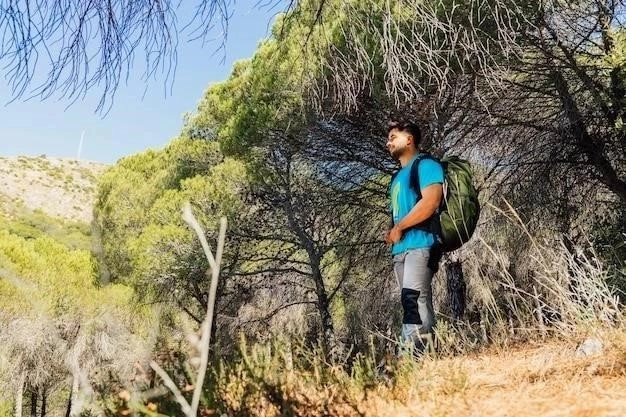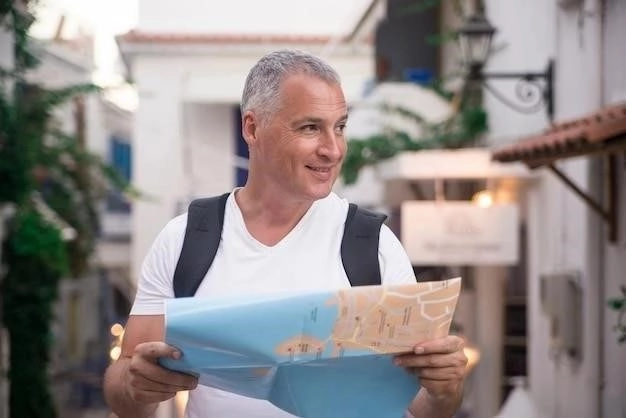Nestled on the West African coast, Togo is a captivating nation brimming with cultural and natural allure. Discover vibrant cities, stunning landscapes, and ancient traditions in this often-overlooked gem. Our comprehensive guide will equip you with all the essentials for planning an unforgettable Togolese adventure.
Planning Your Trip
A well-structured itinerary is essential for maximizing your time in Togo. Begin by researching the best time to visit, considering your preferred activities and the prevailing weather conditions. November to February generally offers the most pleasant climate, ideal for exploring the country’s diverse landscapes.
Visa requirements vary depending on your nationality, so it’s crucial to consult the Togolese embassy or consulate in your home country well in advance. Secure your visa and ensure your passport remains valid for at least six months beyond your intended stay.
Next, delve into the logistics of getting to and around Togo. Lomé–Tokoin International Airport (LFW) serves as the main gateway, with flights connecting to major hubs worldwide. Domestic transportation options include bush taxis, shared minibuses, and private car rentals. Research the most suitable modes of transport based on your itinerary and budget.
Accommodation options in Togo cater to a range of preferences and budgets, from modest guesthouses to upscale hotels. Consider your desired level of comfort and proximity to attractions when making reservations. Booking accommodations in advance is advisable, especially during peak travel seasons.
Best Time to Visit
Togo experiences a tropical climate characterized by warm temperatures and distinct wet and dry seasons. The optimal time to visit for most travelers is during the dry season, which spans from November to February. This period offers the most pleasant weather conditions, with lower humidity, abundant sunshine, and minimal rainfall.
During the dry season, temperatures in Togo range from the mid-70s to the mid-80s Fahrenheit (low 20s to high 20s Celsius), making it ideal for outdoor exploration. Coastal areas benefit from refreshing sea breezes, while inland regions may experience slightly warmer temperatures. Rainfall is scarce during this time, ensuring clear skies and optimal conditions for sightseeing and cultural immersion.
However, it’s essential to note that Togo’s weather patterns can be unpredictable, and brief showers can occur even during the dry season. It’s advisable to pack accordingly, bringing along a lightweight raincoat or umbrella. Additionally, be prepared for occasional Harmattan winds, which blow from the Sahara Desert during the late dry season and can bring dusty conditions.
Visas & Entry Requirements
Prior to embarking on your journey to Togo, it is essential to ensure you possess the necessary travel documentation. Visitors from most countries are required to obtain a visa to enter Togo. Visas can be obtained from Togolese embassies or consulates in your home country or upon arrival at Lomé–Tokoin International Airport (LFW) for a fee. However, it is highly recommended to secure your visa in advance to avoid any potential delays upon arrival.
To apply for a Togolese visa, you will typically need a valid passport with at least six months of remaining validity, a completed visa application form, two recent passport-sized photographs, proof of travel arrangements (such as flight itineraries and hotel reservations), and proof of sufficient funds to cover your stay in Togo.
It’s important to stay updated on the latest visa regulations and requirements, as these can change from time to time. Consulting with the Togolese embassy or consulate in your home country is always the most reliable source of information regarding visa applications and any specific requirements that may apply to your nationality.
Getting There & Around
Reaching Togo is most conveniently achieved by air, with Lomé–Tokoin International Airport (LFW) serving as the primary gateway for international arrivals. The airport welcomes flights from major airlines connecting to various global hubs, including Paris, Brussels, Casablanca, and Addis Ababa. Upon arrival, visitors can find taxis and pre-arranged transportation services for onward journeys to their desired destinations within Togo.
Navigating within Togo offers a mix of transportation options, each presenting a unique experience. Bush taxis, locally known as “trotros,” provide an economical and immersive way to travel between cities and towns. These shared minibuses typically depart when full, adding an element of spontaneity to your journey. Shared taxis, or “taxis-motos,” offer a swifter option for shorter distances, particularly within urban areas.
For those seeking greater comfort and convenience, car rentals are available, although road conditions outside major cities can be challenging. It’s advisable to opt for a four-wheel-drive vehicle and a reputable rental agency. Additionally, hiring a driver familiar with local routes and regulations can enhance the ease of travel, especially for longer journeys.
Accommodation
Togo offers a diverse range of accommodation options to suit various budgets and preferences, ensuring a comfortable stay for every traveler. In the bustling capital city of Lomé, you’ll find a concentration of hotels catering to international standards. These establishments provide a range of amenities, including air-conditioned rooms, en-suite bathrooms, swimming pools, restaurants, and business centers.
Beyond Lomé, accommodation options become more modest, with guesthouses and smaller hotels being the most prevalent choices. While amenities may be simpler, these establishments offer a more authentic and intimate experience, allowing you to immerse yourself in the local culture. In some areas, particularly those renowned for ecotourism, you may find eco-lodges and nature retreats that emphasize sustainability and harmony with the surrounding environment.
When selecting your accommodation, it’s essential to consider factors such as proximity to attractions, transportation accessibility, and your desired level of comfort. It’s advisable to book accommodations in advance, particularly during peak travel seasons or if you have specific preferences. Online booking platforms and travel agencies can assist in finding and securing the most suitable accommodation for your needs.
Health & Safety
Prioritizing your health and safety is paramount when traveling to Togo. It’s advisable to consult with your healthcare provider well in advance of your trip to discuss necessary vaccinations and preventative measures. Routine vaccinations, such as hepatitis A and B, typhoid, and yellow fever, are generally recommended. Malaria is present in Togo, so taking antimalarial medication and using mosquito repellent are essential precautions.
Maintaining a high level of food and water safety is crucial to avoid any health issues. Stick to bottled water for drinking and ensure all food is thoroughly cooked and served hot. Be cautious of consuming food from street vendors, as hygiene standards may vary.
Togo generally experiences a low crime rate; however, it’s prudent to exercise caution, particularly in urban areas and crowded markets. Safeguard your valuables, be aware of your surroundings, and avoid displaying large amounts of cash. It’s advisable to avoid walking alone at night, especially in unfamiliar areas. Familiarize yourself with local emergency numbers and the location of the nearest embassy or consulate.
Things to Do in Togo
Togo offers a captivating blend of cultural immersion, natural wonders, and historical intrigue, promising a rich tapestry of experiences for every traveler. Begin your exploration in Lomé, the vibrant capital city, where you can delve into the heart of Togolese culture. Stroll through the Grand Marché, a bustling hub of commerce and local life, or visit the Musée Togolais d’Art Traditionnel to discover intricate artifacts and traditional crafts.
Venturing beyond Lomé, embark on a journey to the Koutammakou Cultural Landscape, a UNESCO World Heritage site renowned for its extraordinary mud tower-houses, a testament to the architectural ingenuity of the Batammariba people. For nature enthusiasts, a hike to the summit of Mount Agou, Togo’s highest peak, rewards you with panoramic views of the surrounding landscapes.
Discover the allure of Togo’s cascading waterfalls, such as Cascade de Kpime, a hidden gem nestled amidst lush greenery. Immerse yourself in the vibrant tapestry of Togolese culture through traditional music and dance performances, sample the flavors of Togolese cuisine, or venture into local markets to browse for unique handicrafts and souvenirs.
Explore the Capital City: Lomé
Lomé, Togo’s vibrant capital city, pulsates with a captivating blend of West African traditions and modern influences, offering an immersive experience for every traveler. Situated along the Atlantic coastline, Lomé is a city of contrasts, where bustling markets and colonial-era architecture paint a vivid tapestry of Togolese culture and history.
Embark on an exploration of the city’s historical heart, starting with the Grand Marché, a sprawling marketplace teeming with vendors selling everything from colorful textiles and handcrafted jewelry to aromatic spices and fresh produce. Immerse yourself in the sights, sounds, and smells of this vibrant hub, a true reflection of Lomé’s daily life.
For a glimpse into Togo’s artistic heritage, visit the Musée Togolais d’Art Traditionnel, home to an impressive collection of traditional masks, sculptures, and artifacts, showcasing the country’s rich cultural traditions. Stroll along the palm-fringed beaches, where you can soak up the sun, enjoy refreshing sea breezes, and witness the daily catch being brought ashore by local fishermen.
Discover the Koutammakou Cultural Landscape
Embark on an unforgettable journey to the Koutammakou Cultural Landscape, a UNESCO World Heritage site nestled in northeastern Togo. This extraordinary landscape is home to the Batammariba people, renowned for their remarkable mud tower-houses, known as “takienta.” These unique dwellings, some reaching up to two stories high, represent a harmonious blend of traditional architecture and sustainable living.
The Koutammakou Cultural Landscape offers a rare glimpse into the lives of the Batammariba people, who have preserved their ancestral traditions and beliefs for centuries. Explore the traditional villages, where you’ll witness the intricate construction techniques of the takienta, built with mud, wood, and straw, and designed to withstand the elements.
Engage with the local community, learn about their agricultural practices, and discover the intricate rituals and ceremonies that shape their daily lives. The Koutammakou Cultural Landscape is a testament to the resilience and ingenuity of the Batammariba people, offering a captivating journey into the heart of Togo’s cultural heritage.

Hike Mount Agou
Embark on an exhilarating adventure to the summit of Mount Agou, Togo’s highest peak, rising to an elevation of 986 meters (3,235 feet) above sea level. Located in the Agou prefecture, this majestic mountain offers breathtaking panoramic views of the surrounding landscapes, stretching as far as the eye can see.
The hike to the top of Mount Agou is a rewarding experience for nature enthusiasts and adventure seekers alike. Trails wind their way through lush forests, coffee plantations, and quaint villages, offering glimpses of rural Togolese life. The ascent can be challenging at times, but the spectacular views from the summit make it all worthwhile.
As you ascend, you’ll be treated to a symphony of birdsong and the refreshing scent of tropical flora. Once you reach the summit, take a moment to soak in the panoramic vistas, encompassing rolling hills, verdant valleys, and, on a clear day, even the shimmering waters of Lake Volta in neighboring Ghana. The sense of accomplishment and the sheer beauty of the surroundings make hiking Mount Agou an unforgettable experience in Togo.

Visit Cascade de Kpime
Escape the tropical heat and immerse yourself in the refreshing beauty of Cascade de Kpime, a hidden gem nestled amidst the lush greenery of Togo’s Kpalime region. This stunning waterfall cascades down a series of rocky cliffs, creating a mesmerizing spectacle of nature’s raw power and beauty.
A visit to Cascade de Kpime offers a tranquil respite from the bustling cities. The journey to the falls takes you through scenic countryside roads, passing by traditional villages and verdant plantations. As you approach the falls, the sound of rushing water grows louder, creating an atmosphere of anticipation.

Take a refreshing dip in the cool, clear waters at the base of the waterfall, surrounded by lush vegetation and the soothing sounds of nature. For the more adventurous, hike to the top of the falls for panoramic views of the surrounding landscapes. Cascade de Kpime is a true oasis of tranquility, offering a rejuvenating escape into the heart of Togo’s natural beauty.
Experience Togolese Culture
Immerse yourself in the vibrant tapestry of Togolese culture, a captivating blend of ancestral traditions, religious practices, and artistic expressions. Engage with the warmth and hospitality of the Togolese people, known for their welcoming nature and infectious joie de vivre.
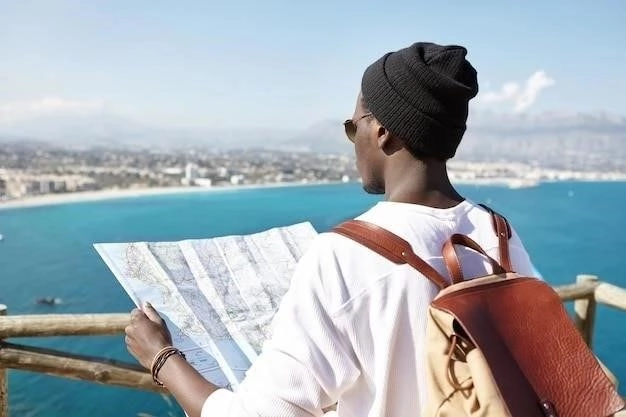
Witness the rhythmic beats and colorful costumes of traditional dance performances, reflecting the country’s diverse ethnic groups and their unique heritage. Explore local markets, where artisans showcase their skills in intricate wood carvings, colorful textiles, and hand-woven baskets. Engage in conversation with vendors and gain insights into their craft and the stories behind their creations.
Indulge in the flavors of Togolese cuisine, a delectable fusion of West African staples with French influences. Sample dishes such as “fufu” (pounded yams), “koklo meme” (grilled chicken with spicy peanut sauce), and “djenkoume” (a cornmeal porridge). Embrace the opportunity to learn a few basic phrases in French, the official language, or delve into the local dialects, a testament to the country’s linguistic diversity.
Togo Travel Essentials
Before embarking on your Togolese adventure, familiarizing yourself with a few essential travel tips will enhance your experience and ensure a smooth journey. The official language of Togo is French, although various local languages are spoken throughout the country. Learning a few basic French phrases will be helpful for navigating daily interactions.
The currency of Togo is the West African CFA franc (XOF). Credit cards are accepted in major hotels and some restaurants in Lomé, but it’s advisable to carry local currency for smaller establishments and transactions in more rural areas. ATMs are available in major cities, but it’s wise to withdraw cash in advance to avoid any inconvenience.
Togo operates on Greenwich Mean Time (GMT), which is the same as Coordinated Universal Time (UTC). Electricity in Togo is supplied at 220 volts and 50 Hertz. It’s recommended to pack a universal adapter to ensure compatibility with your electronic devices.
Food & Drink
Togolese cuisine is a delightful fusion of West African staples with subtle French influences, resulting in a flavorful and aromatic culinary experience. Corn, cassava, rice, and yams form the backbone of many dishes, often accompanied by sauces made with tomatoes, onions, peppers, and a variety of spices.
One of the most popular dishes in Togo is “fufu,” a starchy dough made from pounded yams, cassava, or plantains. Fufu is typically served alongside flavorful soups and stews, such as “egusi soup” (made with ground melon seeds) or “peanut soup” (a rich and creamy stew made with peanut butter). Another staple dish is “koklo meme,” grilled chicken marinated in a spicy peanut sauce and often served with fried plantains or rice.
For a refreshing drink, try “bissap,” a vibrant red juice made from hibiscus flowers, or “ginger juice,” a spicy and invigorating beverage. Locally brewed beers, such as “Eku” and “Awooyo,” are popular choices, while palm wine, tapped from palm trees, offers a more traditional alcoholic beverage.
Language
Togo boasts a rich linguistic tapestry, with French serving as the official language and a symbol of the country’s colonial past. While French is widely spoken in government, education, and commerce, particularly in urban areas, venturing beyond the cities reveals a vibrant array of indigenous languages.
Among the most prevalent indigenous languages are Ewe and Kabiye. Ewe, primarily spoken in the southern regions, holds cultural significance as the language of the Ewe people, known for their vibrant traditions and historical influence. Kabiye, predominant in the north, reflects the cultural identity of the Kabiye people, recognized for their agricultural expertise and distinctive customs.
While knowledge of French is advantageous for navigating urban centers and official interactions, learning a few basic phrases in Ewe or Kabiye can enrich your cultural experience and demonstrate respect for local customs. Consider carrying a phrasebook or utilizing language learning apps to facilitate communication and foster meaningful connections with the Togolese people.
Currency & Money
The official currency of Togo is the West African CFA franc (XOF), denoted by the symbol “CFA” or “FCFA.” The CFA franc is issued by the Central Bank of West African States (BCEAO) and is pegged to the euro, providing a stable exchange rate.
Credit cards, particularly Visa and Mastercard, are generally accepted in major hotels, restaurants, and supermarkets in Lomé and other larger cities. However, it’s essential to carry sufficient local currency (CFA francs) for transactions in smaller establishments, local markets, and rural areas where credit card acceptance may be limited.
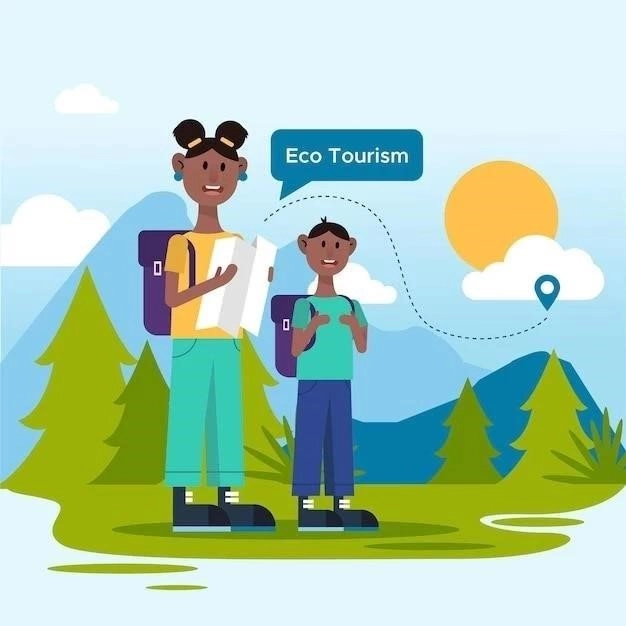
ATMs are available in urban centers, dispensing CFA francs; however, it’s advisable to withdraw cash upon arrival at Lomé–Tokoin International Airport (LFW) or in major cities to ensure access to funds throughout your journey. It’s prudent to inform your bank of your travel plans to avoid any issues with card usage while abroad.
Tipping & Etiquette
Navigating the nuances of tipping and etiquette in Togo demonstrates cultural sensitivity and fosters positive interactions with locals. While tipping is not mandatory in Togo, it is a customary gesture of appreciation for good service, particularly in the tourism industry.
In restaurants, a service charge is typically not included in the bill, and it is customary to leave a small tip of around 5-10% of the total bill if you are satisfied with the service. For porters at hotels or airports, a tip of 500-1000 CFA francs per bag is appropriate. Taxi drivers do not generally expect tips, but rounding up the fare to the nearest 100 CFA francs is a common practice.
When interacting with locals, it’s considered polite to greet them with a handshake and a smile. In more formal settings, it’s customary to address people using their titles, such as “Monsieur” for men and “Madame” for women, followed by their last names. Demonstrating respect for elders is highly valued in Togolese culture, and it’s customary to show deference to their opinions and experiences.
Responsible Travel
Embracing responsible travel practices in Togo ensures that your journey benefits both the local communities and the environment. By making conscious choices and adopting sustainable habits, you can contribute to the preservation of Togo’s cultural heritage and natural beauty for future generations.
Supporting local businesses and communities is paramount to responsible travel. Opt for locally owned accommodations, dine at restaurants serving authentic Togolese cuisine, and purchase handicrafts directly from artisans. By directing your spending towards local enterprises, you contribute to the economic well-being of the communities you visit.

Minimize your environmental impact by being mindful of your consumption habits. Conserve water by taking shorter showers and reusing towels. Reduce plastic waste by carrying a reusable water bottle and opting for refillable options whenever possible. Dispose of waste responsibly and support initiatives promoting sustainable tourism practices.

Further Information & Resources
To enhance your travel planning and gain deeper insights into Togo, consult the following resources:
- Embassy of Togo: Contact the Togolese embassy or consulate in your home country for the most up-to-date information on visa requirements, travel advisories, and consular services.
- Togo Tourism: Explore the official website of Togo Tourism for comprehensive information on attractions, accommodations, transportation, and travel tips.
- Guidebooks: Consult reputable travel guidebooks, such as Lonely Planet or Bradt Guides, for detailed information on destinations, cultural insights, and practical advice.
- Online Travel Forums: Engage with fellow travelers and seek advice on online travel forums, such as TripAdvisor or Lonely Planet’s Thorn Tree forum, where you can find firsthand experiences and recommendations.



